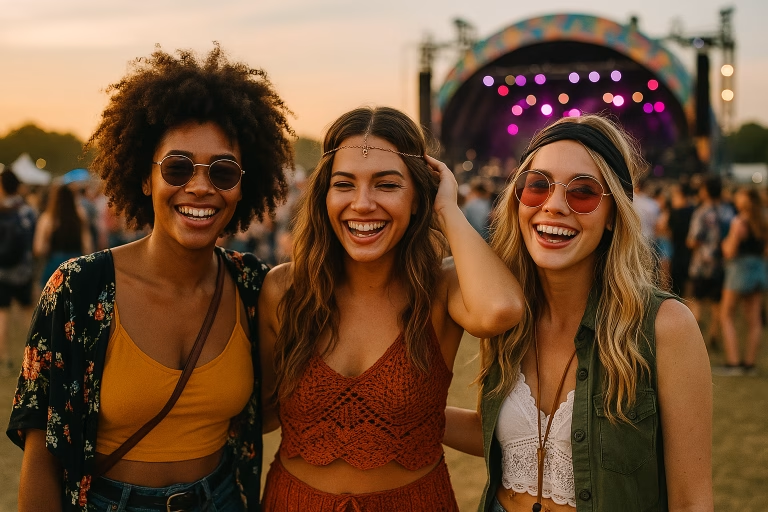
In today’s digital era, internet memes have become a powerful tool for shaping political opinions and influencing pop culture. These viral images, videos, and catchphrases spread rapidly, affecting how people think, react, and engage with the world. But how exactly do memes influence our perspectives, and what impact do they have on society?
The Power of Memes in Politics
1. Memes as Political Propaganda
Memes simplify complex political issues, making them easy to understand and share. Political parties and activists use memes to shape public perception, often using humor, satire, or exaggeration. A single viral meme can frame a politician positively or negatively, influencing millions of voters. Additionally, memes serve as an effective way to call attention to social injustices and government policies, often reaching younger audiences who may not engage with traditional media.
2. Memes Encourage Political Engagement
With short attention spans and the rise of social media, traditional news consumption has declined. Memes, however, serve as bite-sized information sources that keep people engaged with current events. Whether it’s election campaigns, protests, or policy discussions, memes encourage civic participation and spark debates online. In many cases, memes have played a role in mobilizing voters, inspiring activism, and even leading to policy changes when they go viral.
3. Memes Create Echo Chambers
Social media algorithms push content that aligns with users’ beliefs, leading to confirmation bias. This means people mostly see memes that reinforce their political opinions, making them less likely to consider opposing viewpoints. While this strengthens political identity, it also increases polarization. Furthermore, politically charged memes can sometimes lead to the spread of misinformation, as catchy and humorous content can be shared without verification.
4. Memes as a Form of Digital Protest
Political memes serve as a modern form of protest, giving individuals and movements a voice online. Memes allow people to express dissent, critique governments, and spread awareness about political issues with just a simple image or phrase. Recent global movements, such as Black Lives Matter and climate change activism, have effectively utilized memes to engage millions in meaningful conversations.
Memes and Their Influence on Pop Culture
1. Driving Trends and Challenges
Many pop culture trends originate from memes. Whether it’s viral dance moves, catchphrases, or internet challenges like the #IceBucketChallenge, memes shape entertainment, fashion, and music. Celebrities and brands often capitalize on memes to stay relevant and engage with audiences. Streaming platforms like TikTok and Instagram Reels have amplified the spread of viral content, making memes a dominant force in shaping cultural conversations.
2. Memes Influence Brand Marketing
Companies integrate memes into advertising strategies to connect with younger audiences. Brands like Wendy’s, Netflix, and Gucci use meme culture to appear relatable and drive engagement. A well-timed meme can boost brand visibility, leading to increased sales and customer loyalty. Additionally, meme marketing has become a cost-effective strategy for brands, allowing them to engage audiences without massive advertising budgets.
3. Memes Define Generational Humor
Different generations have distinct meme preferences. Millennials and Gen Z, for example, lean towards self-deprecating and absurd humor, while older generations may prefer classic political cartoons or motivational memes. This generational humor defines social interactions and cultural identity. The evolving nature of memes also reflects shifts in societal norms, humor styles, and communication methods.
4. Memes as a Reflection of Social Issues
Beyond humor and entertainment, memes often highlight societal issues such as mental health, work-life balance, and economic struggles. The rise of “relatable memes” showcases common frustrations with corporate culture, relationships, and social expectations, resonating with a broad audience. Platforms like Twitter and Reddit serve as breeding grounds for socially conscious memes that push conversations about inclusivity, representation, and mental wellness.
The Dark Side of Memes
While memes are entertaining and informative, they also have drawbacks:
- Misinformation: Fake news spreads easily through memes, making fact-checking difficult. Many political and conspiracy theory memes distort facts, influencing public perception.
- Cyberbullying: Some memes mock individuals or groups, leading to online harassment. Cancel culture has weaponized memes to target public figures and ordinary individuals alike.
- Cultural Appropriation: Memes often borrow elements from different cultures, sometimes without proper credit or understanding. This can lead to the commercialization of cultural symbols without acknowledging their origins.
- Short Attention Spans: The rapid consumption of memes reduces in-depth discussions, leading to oversimplification of critical issues. People may rely on meme-driven narratives rather than seeking factual, well-researched information.
The Future of Memes and Their Impact on Society
The role of memes in shaping political and cultural discourse is only growing. As artificial intelligence and deepfake technology evolve, memes will become even more sophisticated, blending reality with satire in unprecedented ways.
To navigate the meme-driven world responsibly, individuals should:
- Verify sources before sharing political or informational memes.
- Engage in discussions beyond memes to gain deeper insights into issues.
- Be mindful of the ethical implications of sharing certain memes, especially those that may reinforce stereotypes or misinformation.
Conclusion
Internet memes are more than just jokes—they are tools that shape political opinions and drive cultural trends. Whether used for activism, humor, or marketing, memes have a lasting impact on society. As consumers of digital content, it’s crucial to think critically and fact-check before sharing.
Share this article and join the conversation! 🗣️📢 #InternetMemes #Politics #PopCulture #MemeCulture #MemeMarketing #DigitalProtest
For more insights on how digital trends impact society, visit Mashable, The Verge, and Pew Research.














